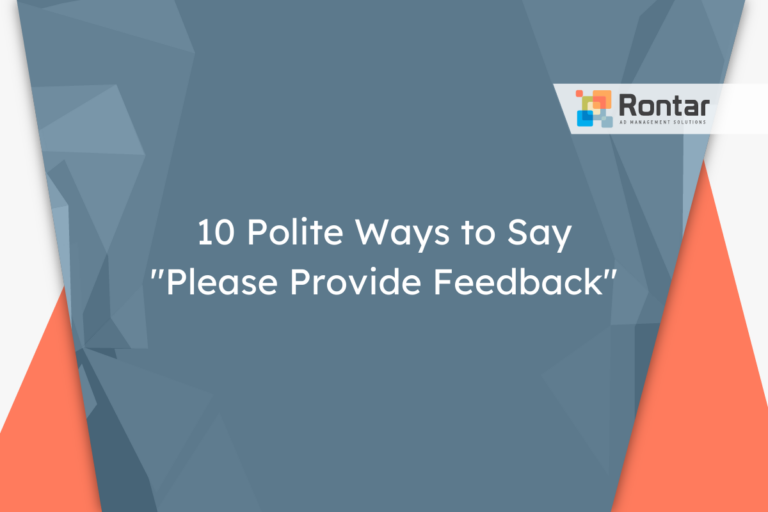10 Professional Synonyms for “Please Let Me Know”

In professional settings, it’s important to communicate clearly and politely. Saying “please let me know” is a common way to request information, but sometimes you might want to switch it up.
This article lists ten different ways to ask for a response or feedback, suitable for various situations. Each alternative is explained with examples and tips on when to use them.
Is It Professional to Say “Please Let Me Know”?
Yes, the phrase “please let me know” is considered professional, formal or informal depending on the context, and it is always seen as polite. It’s a flexible expression that can be used in various situations, making it a go-to for many professionals. You can use this phrase when you need information, a response, or feedback from someone.
It works well in professional settings, especially when communicating with colleagues, managers, or clients. It’s also appropriate for more informal contexts, like speaking with friends or family, if there’s a need for formality. It’s suitable for emails, messages, and even in verbal communication.
Here’s a short example:
Hi Alice, I am writing to inquire about the status of the report that was due last Monday. If you have any updates, please let me know. Best regards, Bob
Now, let’s explore the pros and cons of using “please let me know.”
Pros:
- It is clear and straightforward, making your request understandable.
- Shows politeness and respect towards the recipient.
- Flexible for use in both formal and informal situations.
Cons:
- Can be seen as vague without specifying what you want to know.
- Overused, which might make your message less impactful.
- In certain contexts, it might appear too passive.
Someone might want to use an alternative phrase to “please let me know” to be more specific about what they’re asking for or to add variety to their language. Using synonyms or alternatives can also tailor the tone more closely to the intended audience or to match the level of formality of the situation.
10 Other Ways to Say “Please Let Me Know”
Looking for different ways to ask for information or a response? Here are ten professional alternatives:
- Please advise
- I’d appreciate your feedback
- Let me know your thoughts
- Awaiting your response
- Please inform me
- Looking forward to your input
- Please keep me posted
- Please keep me updated
- Please keep me in the loop
- Feel free to update me
1. Please advise
Compared to “please let me know,” “please advise” sounds more formal and is often used in business emails. It directly asks for guidance or a decision from the recipient.
This alternative is better suited for professional settings where you are seeking advice or a decision from colleagues or superiors. It’s particularly useful in emails or memos where a specific action or response is needed. “Please advise” is ideal when addressing individuals in positions of authority or when formal communication is required.
Email example:
Hi Eric, Please advise on the next steps for the project. Best regards, Alex
2. I’d appreciate your feedback
This synonym feels more personal and slightly less formal than the original phrase. It expresses a desire for the recipient’s opinions or thoughts, highlighting the value of their input.
Use this phrase when you’re seeking constructive criticism or feedback on your work or ideas. It’s well-suited for emails to colleagues, mentors, or clients who you believe can offer valuable insights. This alternative fosters a polite and collaborative atmosphere, making it perfect for professional relationships where feedback is welcomed.
Example:
Hi James, I'd appreciate your feedback on the presentation draft. Warm regards, Jordan
3. Let me know your thoughts
This phrase is a bit more informal but still remains polite and professional. It invites recipients to share their opinions or ideas freely.
It’s ideal for scenarios where you’re looking for ideas, suggestions, or opinions from team members or peers. This alternative encourages open communication and is perfect for emails or messages within teams or when brainstorming with colleagues. It’s best used in a relaxed but professional context.
Example:
Hi Olivia, Let me know your thoughts on the proposed changes. Cheers, Sam
4. Awaiting your response
“Awaiting your response” implies a more formal tone and suggests that the sender is in anticipation of a reply. It’s direct and to the point.
This phrase is best used in formal communications where a timely response is critical. It can be used in official requests, proposals, or when a decision is urgently needed. It’s most suitable for emails to superiors or in formal correspondence where clarity and brevity are valued.
Email sample:
Hi Emma, Awaiting your response at your earliest convenience. Sincerely, Diana
5. Please inform me
This alternative is straightforward and maintains a formal and professional tone. It requests specific information from the recipient.
When you need clear and specific information from someone, especially in a professional setting, this is a good choice. It works well in formal emails to superiors or when communicating with departments that require precise details, such as HR or finance.
Email example:
Hi William, Please inform me about the status of my application. Best, Liam
6. Looking forward to your input
This synonym is polite and conveys enthusiasm for the recipient’s opinions or suggestions. It’s slightly less formal but very positive.
This phrase is particularly effective in encouraging a friendly and collaborative environment. It’s best suited for emails to colleagues or industry peers when you’re genuinely interested in their ideas or feedback. This alternative creates an inviting tone, ideal for fostering open dialogue and collaboration.
Example:
Hi Charlotte, Looking forward to your input on the project plan. Best wishes, Mia
7. Please keep me posted
“Please keep me posted” is an informal yet polite way to ask for updates. It implies a casual and friendly relationship with the recipient.
Use this in less formal emails or messages where ongoing updates are expected. It’s perfect for conversations with colleagues you’re working closely with or when you want to stay informed about a project’s progress without sounding too formal.
Example:
Hi Daniel, Please keep me posted on the meeting outcomes. Thanks, Evan
8. Please keep me updated
This phrase is similar to “please keep me posted” but with a slightly more formal tone. It’s a request for periodic updates on a situation or project.
When you’re looking for regular updates on a specific task or project, especially from team members or project leads, this phrase is ideal. It’s suitable for professional settings where you’re not directly involved in the day-to-day work but need to be informed about the progress.
Email example:
Hi Amelia, Please keep me updated on the project's status. Kind regards, Olivia
9. Please keep me in the loop
This alternative is informal and suggests that you want to be kept informed about developments or decisions. It’s friendly and approachable.
It’s great for use with teams or in projects where staying informed is crucial, but the atmosphere is relaxed. This phrase works well in emails to peers or in group communications where everyone is contributing to the conversation. It helps maintain a sense of inclusion and teamwork.
Example:
Hi Robert, Please keep me in the loop on any updates. Thanks, Noah
10. Feel free to update me
“Feel free to update me” is an inviting and informal way to ask for information. It gives the recipient the flexibility to respond at their convenience.
This alternative is best for less formal interactions where you’re looking to be informed about changes or progress without putting pressure on the recipient. It’s suitable for communications with colleagues or within teams where you have a more relaxed relationship.
Example:
Hi Sophia, Feel free to update me on how the project is going. All the best, Sophia
Final Thoughts
Choosing the right way to ask for information or feedback can make your communication more effective and respectful. The ten alternatives provided offer a range of options from formal to informal, each suited to different professional contexts. Using these phrases can help you keep conversations clear and positive.






